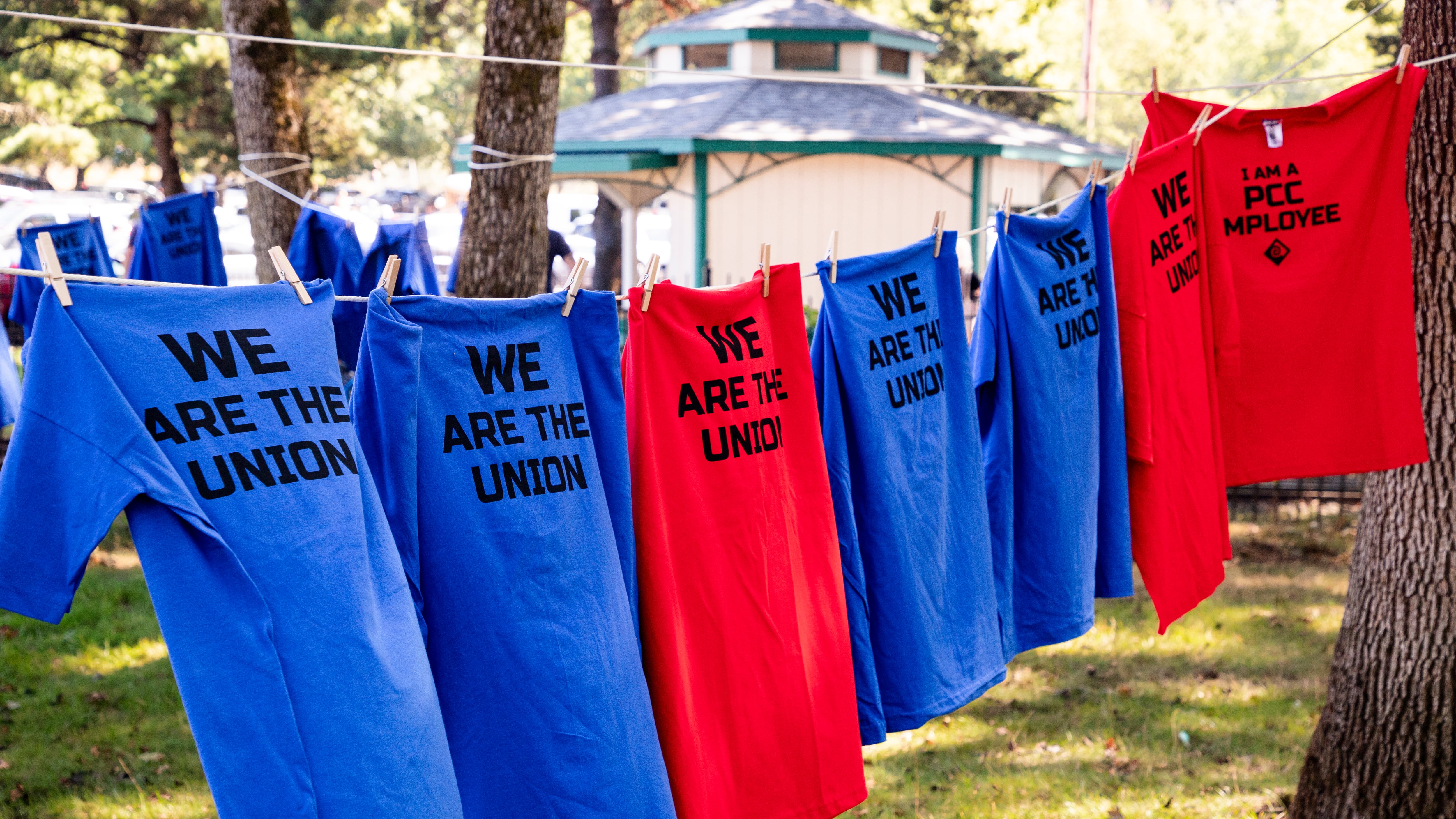Labor unions and their foes continue to debate how grave an effect a 2018 U.S. Supreme Court ruling had on Oregon's union membership.
The ruling—Janus vs. American Federation of State, Country and Municipal Employees—dictated that government workers who don't wish to join unions are not required to pay dues that go toward collective bargaining. It meant that public employee unions, which are powerhouses in Oregon, could lose thousands of dollars and become less effective.
Two years later, avowed political enemies give conflicting accounts of the ruling's effect. In the last week, Oregon unions and their anti-union foes both released statistics showing how organized labor has fared after the Janus ruling.
An annual report from the U.S. Bureau of Labor Statistics says Oregon's union membership is on the rise. In 2019, the number of Oregon workers who are represented by a union grew from 256,000 to 277,000.
But that growth is unusual, as nationwide union membership saw a 0.2 percent decrease from 2018.
Graham Trainor, president of labor union federation Oregon AFL-CIO, said in a statement that the Oregon increase is due to working people being "fed up."
"Monthly employment and economic reports show us that the stock market is soaring, but wages are stagnant," Trainor said. "More and more workers are having to piece together a living through multiple low-wage jobs. At the same time, we see policies like the Trump Administration's tax cuts put more money into the pockets of CEOs and Wall Street."
Ben Morris, a spokesperson for Oregon's largest union, the Service Employees International Union Local 503, says that SEIU 503 has grown from 52,000 people 10 years ago to 72,000 people today. He adds that the increased membership is largely due to the expansion of Oregon's homecare program.
But the Freedom Foundation, an anti-union group, points to another number—which it says shows increased membership hasn't resulted in increased power—because the members are no longer compelled to pay dues. The Freedom Foundation released figures on Jan. 20 alleging SEIU collected less in dues and spent less on political activity in 2018 compared to years prior.
Those figures show that SEIU 503 took in roughly $2 million less in dues in 2019 than in 2018, and spending around $900,000 less in political activities and lobbying.
But Melissa Unger, SEIU's executive director, says that varying totals for the union's spending on politics and decreased dues collection doesn't signify a weakening of employee unions, but rather that the union "doesn't spend money every election cycle, but spends on priority ballot measures."
"Freedom Foundation really is an organization that's set up to advance the interest of corporations," Unger says. "One of the biggest threats to corporations is people uniting to make sure government works well and democracy is successful."
